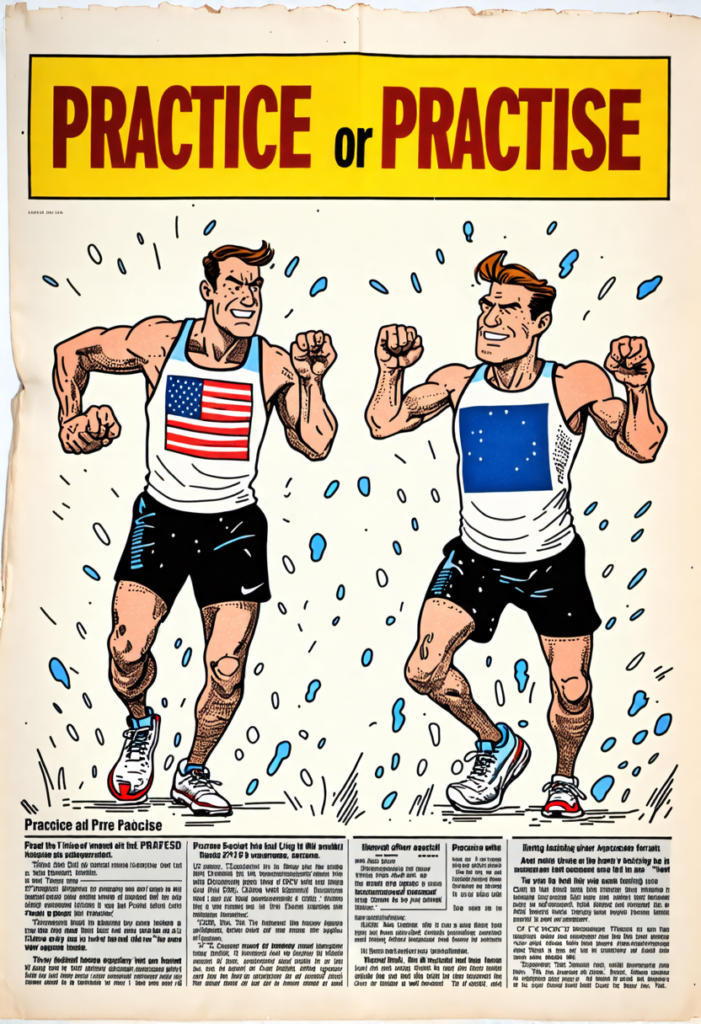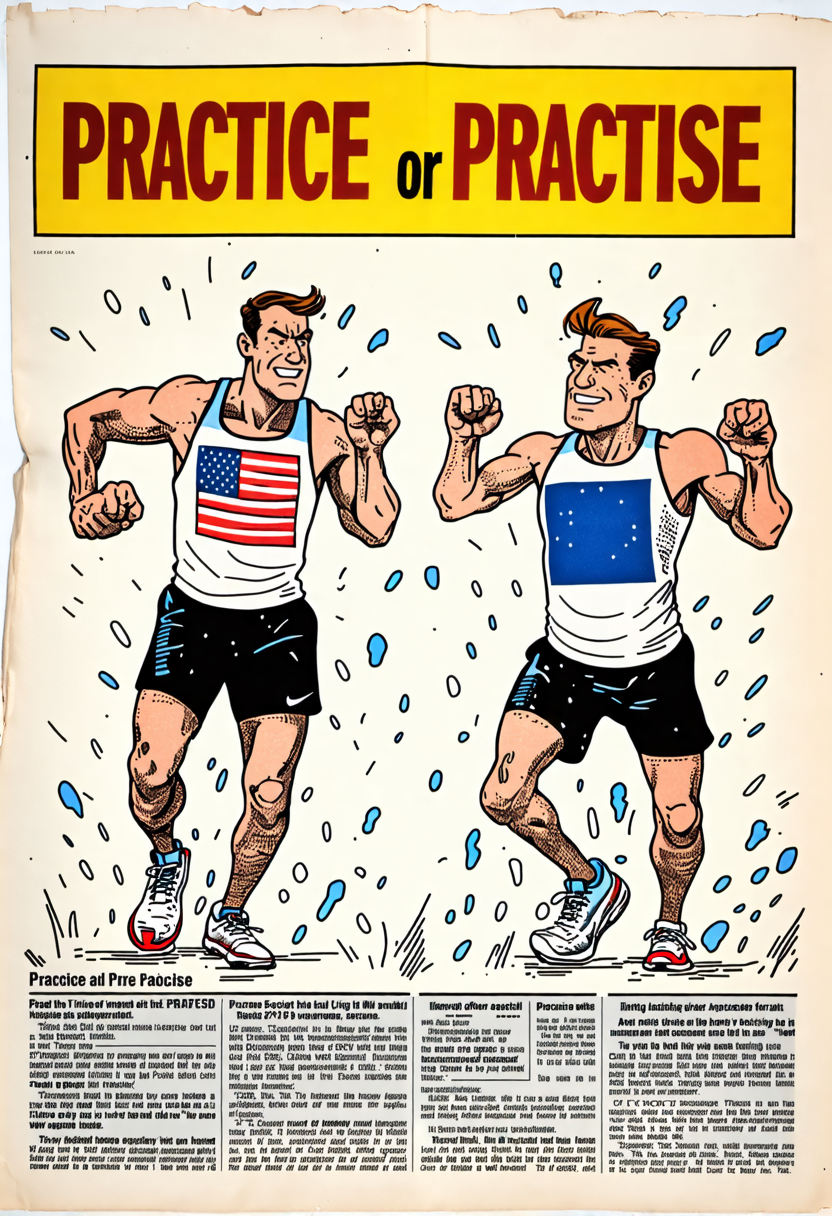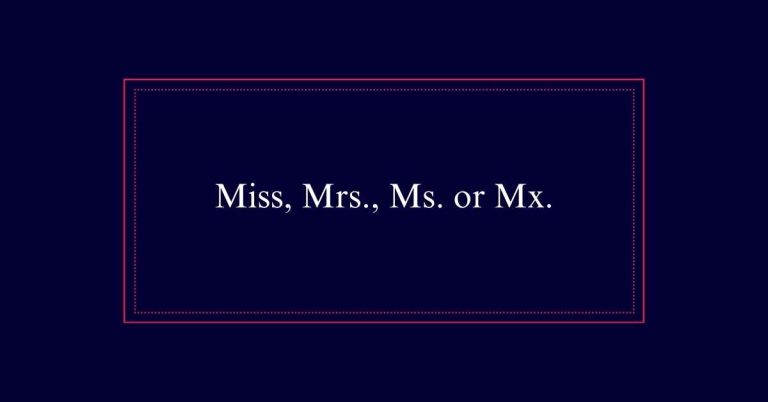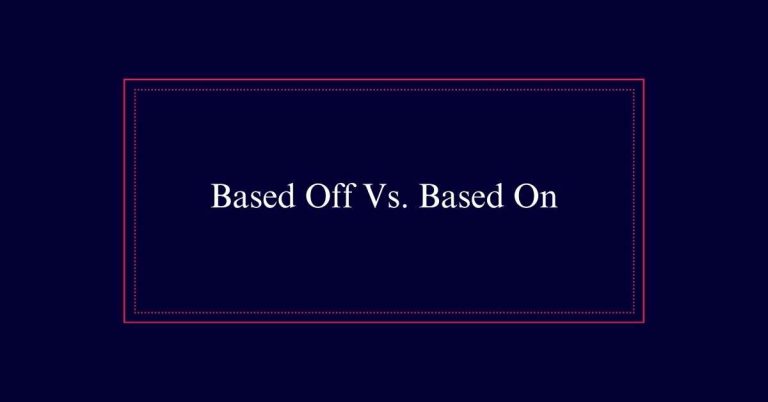Practice or Practise
The correct spelling of ‘practice’ or ‘practise’ depends on regional conventions. In American English, ‘practice’ is used for both nouns and verbs. British English distinguishes between the two: ‘practice’ for nouns and ‘practise’ for verbs. Canadian English generally follows American usage, while Australian English aligns with British norms. Historical development has shaped these differences, essential for accurate communication, especially in professional fields.
American English Usage
In American English, the word ‘practice’ is used consistently as both a noun and a verb.
This simplifies spelling rules, as it eliminates the need for different forms. For example, one might say, ‘Every day after school, Robert likes to practice singing his solo,’ using the word as a verb. Similarly, ‘Soccer practice was intense today,’ demonstrates its noun form.
This uniformity in American English reduces confusion and streamlines writing and communication. Whether referring to a rehearsal, a professional service, or the act of performing an activity regularly, ‘practice’ remains unchanged.
British English Rules
British English rules for spelling ‘practice’ and ‘practise’ are more nuanced than American conventions. In British English, the word’s function dictates its spelling. ‘Practice’ with a ‘c’ is used as a noun. For example, ‘She attended her piano practice.’
In contrast, ‘practise’ with an ‘s’ serves as a verb. An example is, ‘He will practise his speech tonight.’
This distinction helps clarify meaning in sentences. For instance, ‘The doctor’s practice is busy’ refers to the noun form, indicating a place of work. ‘The doctor will practise medicine’ uses the verb form, indicating the action of performing medical tasks.
Canadian English Preferences
While British English distinguishes between ‘practice’ and ‘practise,’ Canadian English often aligns more closely with American conventions.
In Canada, ‘practice’ is generally used for both the noun and verb forms. This means that Canadians write ‘practice’ whether referring to a doctor’s practice or the act of practicing a skill. The preference for this uniform spelling simplifies usage and reduces confusion.
However, it’s worth noting that some Canadians, influenced by British traditions, might still use ‘practise’ as a verb. Despite this, the Americanized spelling is more prevalent in Canadian writing. When in doubt, using ‘practice’ for both forms is usually correct in Canadian English. This approach reflects a blend of simplicity and clarity.
Historical Context
The distinction between ‘practice’ and ‘practise’ has evolved over centuries, influenced by historical changes in English spelling conventions. In early English, spelling was not standardized. Writers often used different spellings for the same word.
The standardization process began in the 18th century with dictionaries like Samuel Johnson’s in Britain and Noah Webster’s in America. Johnson’s dictionary favored ‘practice’ for the noun and ‘practise’ for the verb, while Webster’s aimed to simplify American English, using ‘practice’ for both forms.
These differing approaches solidified the variations between British and American English. Over time, British English maintained the distinction, whereas American English opted for consistency.
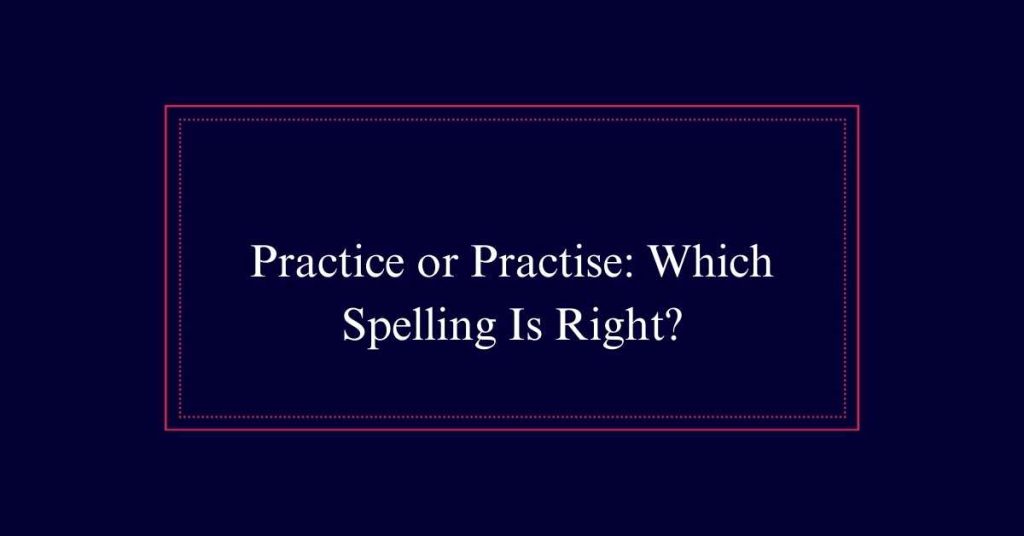
Common Mistakes
A frequent mistake occurs when writers use ‘practice’ and ‘practise’ interchangeably without considering their regional spelling rules.
In American English, ‘practice’ is correct for both noun and verb forms. However, British English distinguishes between the two: ‘practice’ is the noun, and ‘practise’ is the verb.
This confusion often arises in written communication, leading to errors that can undermine the writer’s credibility. For instance, saying ‘I need to practice my skills’ is correct in both American and British contexts. But in British English, ‘I need to practise my skills’ would be the accurate verb form.
Industry-Specific Use
In various professional industries, the distinction between ‘practice’ and ‘practise’ can impact legal documents, medical records, and educational materials. In legal settings, precise language is essential to avoid misinterpretation. Medical professionals, particularly in British English, need to distinguish between the noun ‘practice’ (the business) and the verb ‘practise’ (the action). Similarly, educators must guarantee correct usage in curriculum materials to maintain credibility.
Here’s a quick reference table:
| Industry | Noun (American) | Verb (British) |
|---|---|---|
| Legal | Practice | Practise |
| Medical | Practice | Practise |
| Education | Practice | Practise |
| General Business | Practice | Practise |
Impact of Globalization
Globalization has influenced the standardization of English spelling across different regions. As businesses and individuals interact more globally, a need for consistent language usage has emerged. This includes spelling conventions, which can differ between American and British English. Companies operating internationally often adopt a single standard to avoid confusion.
Additionally, the internet plays a significant role. Online platforms frequently favor American English due to its dominant presence in digital content. This exposure leads to a wider acceptance of American spellings, even in regions traditionally using British English. Over time, this trend helps bridge spelling differences, creating a more uniform approach.
Spelling Trends
As globalization fosters a more interconnected world, spelling trends are evolving to reflect this change. The distinctions between American and British English are becoming less rigid. This affects many words, including ‘practice’ and ‘practise.’
In American English, ‘practice’ is used for both nouns and verbs, while in British English, ‘practice’ is a noun, and ‘practise’ is a verb. However, these rules are not always strictly followed.
Influence of Media: Global media platforms often use American spelling, influencing international usage.
Educational Materials: Many educational resources adopt a standardized spelling to cater to a global audience.
Digital Communication: Online interactions often blur the lines between different English spellings.
These trends highlight the dynamic nature of language.
Learning Tips
Finally, mastering the correct use of ‘practice’ and ‘practise’ can be simplified with a few effective strategies.
First, remember that ‘practice’ is always correct in American English, whether as a noun or a verb. In British English, use ‘practice’ as the noun and ‘practise’ as the verb. Visual aids like flashcards can help reinforce this distinction.
Another useful tip is to associate ‘practise’ with ‘advise’ (both verbs end in ‘ise’). Similarly, link ‘practice’ with ‘advice’ (both nouns end in ‘ice’). Regularly reading British and American texts can also improve familiarity.
Engaging in writing exercises focusing on these words will help solidify your understanding, making you more confident in distinguishing between the two.
Practical Examples
Providing practical examples can be an effective way to understand the distinction between ‘practice’ and ‘practise’.
In American English, ‘practice’ is always correct, regardless of whether it is a noun or a verb.
- American English:
‘Every day after school, Robert likes to practice singing his solo for the spring concert.’
However, British English differentiates between the noun and verb forms.
- British English (Noun):
‘The doctor’s practice is located on Elm Street.’
- British English (Verb):
‘She needs to practise her piano skills daily.’
These examples highlight the contextual usage of ‘practice’ and ‘practise’ in different forms of English, making it easier to remember the correct spelling based on the region and function.
Frequently Asked Questions
How Do Spelling Differences Impact Language Learning for Non-Native Speakers?
Spelling differences complicate language learning for non-native speakers by adding an extra layer of complexity. Learners must remember which variant to use and in which contexts, often leading to confusion and errors in both writing and speaking.
Why Do British and American English Have Different Spelling Rules?
British and American English have different spelling rules due to historical influences and language evolution. Noah Webster’s reforms in the 19th century aimed to simplify American English, creating distinct variations from British English.
Can the Context of a Word Influence Its Spelling?
Yes, the context of a word can influence its spelling. In British English, “practice” is a noun and “practise” is a verb. In American English, “practice” is used for both noun and verb forms.
